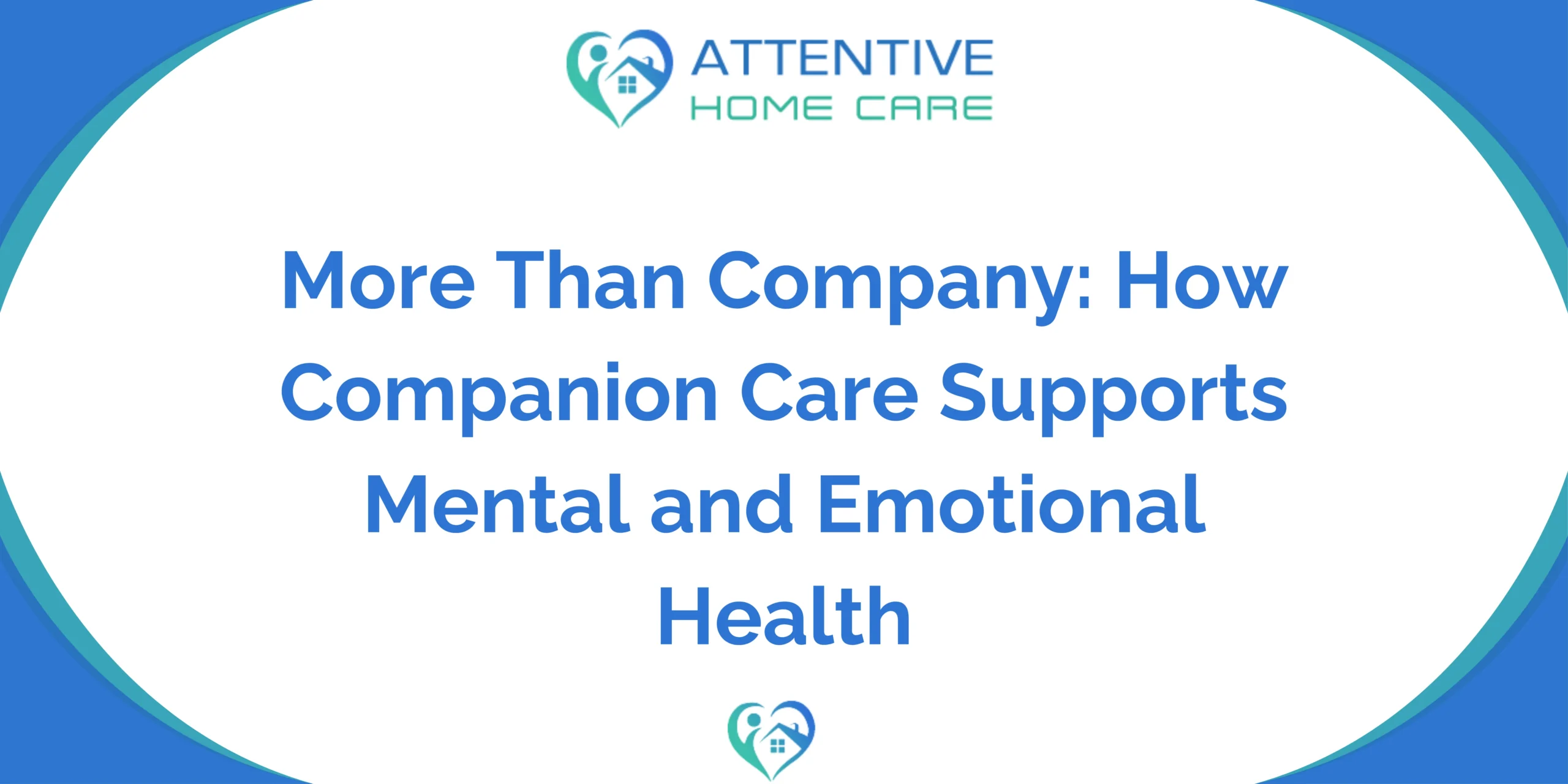Many seniors say the hardest part of aging isn’t mobility, it’s the silence. Days without conversation can feel heavy, and even the simplest joys lose their spark.
Companion care helps fill that silence with warmth, laughter, and purpose. More than a service, it nurtures mental and emotional health in ways that truly transform daily life.
Emotional Well-Being: The Overlooked Side of Aging
Growing older comes with changes that can feel overwhelming, loss of independence, shifting family roles, or fewer social circles. Without proper support, these shifts can lead to loneliness or depression.
Emotional well-being is just as critical as physical health, and research from the National Institute on Aging shows that seniors who feel socially connected often live longer, healthier lives.
Companion care addresses this need directly. Through consistent, meaningful interaction, it acts as a buffer against isolation and its long-term impact on both mind and body.
How Companion Care Services Strengthen Mental Health
A listening ear and a steady presence can be powerful. Companion care services don’t just occupy time; they create routine, structure, and reassurance.
Here are a few ways it helps:
- Encouraging conversation: Talking about memories, hobbies, or current events keeps minds sharp and moods lifted.
- Promoting engagement: Activities like reading together or walking outdoors foster connection and stimulation.
- Providing reassurance: Knowing someone will be there tomorrow eases worry and builds confidence.
Coordinating these simple yet meaningful touches is often supported further with care coordination services, ensuring every part of a senior’s care fits together seamlessly.
Elderly Companion Care: Beyond Simple Interaction
Elderly companion care is about belonging. Seniors want to feel valued, not just cared for. Companion home care makes sure they stay included in conversations, decisions, and everyday experiences.
Examples of what this can look like include:
- Sharing meals instead of eating alone
- Attending local events or community gatherings
- Running errands together to maintain independence
- Watching a favorite show or movie side by side
These moments may feel small, but together they create a life that feels whole again.
Where Emotional Care Meets Senior Home Support
Families often turn to senior home care for practical reasons, help with meals, mobility, or medications. Yet, many soon realize how vital the social element is.
Companion care for seniors bridges this gap, blending emotional and physical support. When combined with other services like personal care services or skilled nursing, the result is a holistic plan that strengthens both body and spirit.
Seniors don’t just manage at home, they thrive.
The Noticeable Uplift Families Experience
Families often share how quickly they see changes once care begins:
- Brighter moods: Seniors smile more and engage with daily life.
- Greater confidence: Having a companion makes them feel secure.
- Stronger family bonds: Relationships improve as stress and isolation lessen.
It’s not only seniors who benefit. Families feel at ease knowing their loved one is cared for emotionally as well as physically.
Breaking Loneliness and Restoring Daily Purpose
Loneliness often spirals into poor sleep, reduced appetite, and lack of motivation. Companion care breaks this cycle.
With someone to share the day, seniors regain rhythm and purpose. Social contact helps them rediscover joy in hobbies, storytelling, and laughter.
This is the essence of strong mental health support, not just medical intervention, but a genuine human connection.
When Is the Right Time to Consider Companion Care?
It may be time to explore senior companion care if you notice:
- Withdrawal from conversations or favorite activities
- Lack of structure or routine at home
- Expressions of loneliness or sadness
- Regularly eating meals alone
Introducing a caregiver before a crisis arises can prevent deeper challenges down the road.
Moving Toward a Better Quality of Life
If someone you love feels isolated, companion care could be the bridge to a brighter tomorrow. It’s not just about keeping company, it’s about restoring joy, confidence, and belonging.
Ready to learn more? Explore companion care options here or call us today to create a personalized plan for your family. Same-day introductions are available.
Closing Reflection
At its core, companion care is about connection. It weaves shared conversations, routines, and experiences into the everyday lives of seniors.
This simple but profound form of senior home care nurtures emotional health, strengthens mental well-being, and proves that life at home can remain rich and meaningful.
Because in the end, it’s not just care, it’s connection.
Frequently Asked Questions (SEO Schema-Ready)
Q1: What’s the difference between companion care and personal care?
Companion care focuses on social interaction, conversation, and emotional support. Personal care includes assistance with daily activities like bathing, grooming, or mobility.
Q2: How do I know if my loved one needs companion care?
If they seem withdrawn, lonely, or are losing interest in activities, companion care may help restore purpose and connection.
Q3: Can companion care be combined with other services?
Yes. It often works best when paired with services such as personal care or skilled nursing to provide well-rounded support at home.

